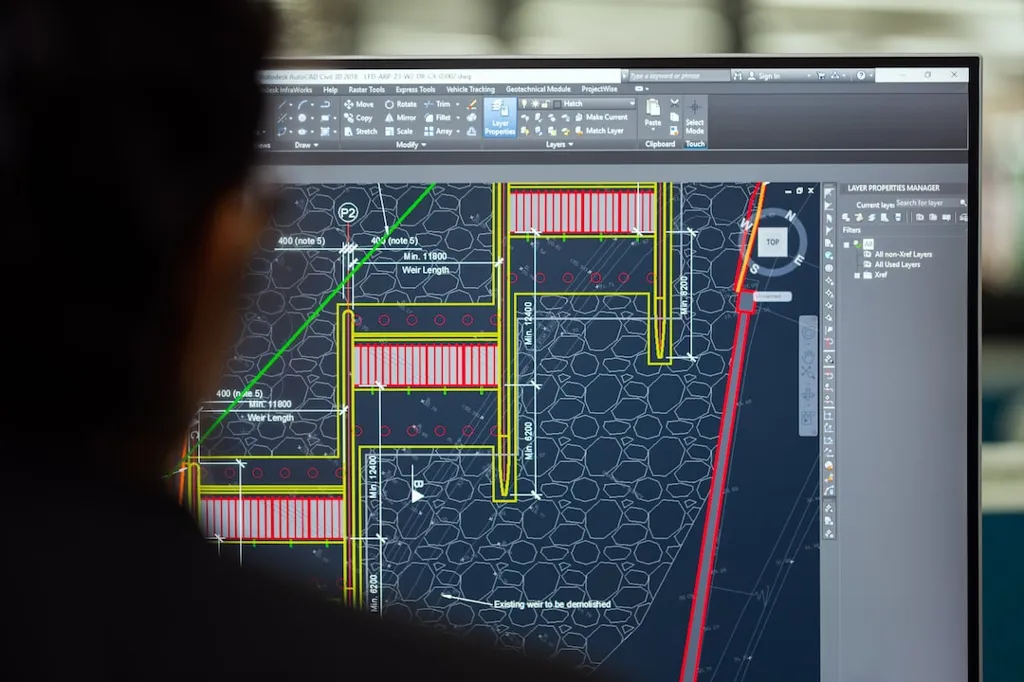Environmental Engineering Technologists and Technicians: Job Description, Examples, Education and Progression
Environmental engineering technologists and technicians assist engineers and scientists in developing solutions for environmental problems. The job involves analyzing and collecting data, preparing technical reports, and conducting laboratory tests. Environmental engineering technologists and technicians can work in various settings such as government agencies, private companies, consulting firms, and research institutions. This article will discuss some examples of the job, the education and progression path, and how to get into the field as a newbie.
Job Examples of Environmental Engineering Technologists and Technicians
There are various job examples of environmental engineering technologists and technicians depending on the area of specialization. Below are some examples:
Water Treatment Technician
A water treatment technician is responsible for treating wastewater and ensuring that it meets the environmental standards. The technician conducts tests on water samples to determine the levels of pollutants, monitors the treatment process, and maintains the equipment.
Environmental Lab Technician
An environmental lab technician conducts laboratory tests on soil, water, air and other environmental samples to analyze pollutants. The technician uses analytical instruments such as gas chromatography, spectrophotometer, and atomic absorption spectroscopy.
Environmental Compliance Technician
An environmental compliance technician ensures that the company or organization adheres to environmental rules and regulations. The technician reviews the environmental permit requirements for the company, conducts environmental audits, and makes recommendations to reduce pollutants that could cause harm to the environment and human health.
Educational and Progression Path to Become an Environmental Engineering Technologist and Technician
To become an environmental engineering technologist and technician, a minimum of an associate degree in environmental engineering technology or a related field is required. However, some employers prefer a bachelor’s degree or a professional certification. The coursework in these programs includes environmental science, water quality management, air pollution control, hazardous waste management, and environmental regulations.
The progression path in this career can occur in multiple forms such as gaining work experience, obtaining a professional certification, or furthering education. With experience, environmental engineering technologists and technicians can advance to supervisory roles or become environmental engineers. Additionally, professionals in this field can get certified by organizations such as the National Institute for Certification in Engineering Technologies (NICET) or the Association of Boards of Certification (ABC).
How to Get into Environmental Engineering Technology and Technician Field as a Newbie
Getting into the environmental engineering technology and technician field requires obtaining the required education and certification. However, there are a few tips that can help newbies get into the field:
Network with Professionals in the Field
By attending networking events or volunteering, one can meet and build connections with people already working in the field. Networking helps to get information about available jobs, skills required, and how to progress in the career.
Consider Internship Opportunities
Internship opportunities in environmental engineering technologists and technician field offer hands-on experience and get to apply theoretical knowledge. This experience may help to understand the operations of environmental engineering projects and gain valuable insights into day-to-day practices.
Join Professional Organizations
Professional organizations such as the National Environmental Health Association (NEHA) and the National Society of Professional Engineers (NSPE) offer training, resources, and connections to professionals in environmental engineering technologists and technician field.
Conclusion
Environmental engineering technologists and technicians play a vital role in environmental engineering projects. Their responsibilities include data collection and analysis, construction of equipment, and reporting of related data. By obtaining the required education and certification and following the right steps, a newbie can establish a career in environmental engineering technologists and technician field.
Environmental engineering technologists and technicians are responsible for ensuring that environmental projects and programs comply with regulations and standards related to environmental protection. The job level, salary data, and effects of union on this job are critical determinants of the demand for this role among job seekers.
The US national average salary for environmental engineering technologists and technicians is $58,115.20 for all workers at level 07, and $77,625.60 for those not able to be leveled. The salary differs based on various factors such as union, non-union, full-time, and time-based pay.
For instance, the average salary for environmental engineering technologists and technicians is $56,284.80 for union workers, and $59,113.60 for non-union workers. Moreover, the average salary is $58,177.60 for full-time workers, with level 07 full-time workers earning $58,198.40 and those not able to be leveled earning $79,060.80.
However, the average salary for time-based pay is $57,969.60, which is slightly lower than the full-time average salary. The presence of a union also affects the salary of environmental engineering technologists and technicians, where union workers earn a slightly lower average salary compared to non-union workers.
According to the Bureau of Labor Statistics, the best-paid environmental engineering technologists and technicians are in California and Alaska, where the average salary is $75,270 and $73,640, respectively. On the other hand, North Dakota and Louisiana are the least paid states where the average salary is $45,420 and $43,800, respectively.
In conclusion, environmental engineering technologists and technicians’ job level and salary data are essential factors to consider when job seekers are looking for work in this field. The union also plays a small but significant role in the average salary of workers in this industry.












